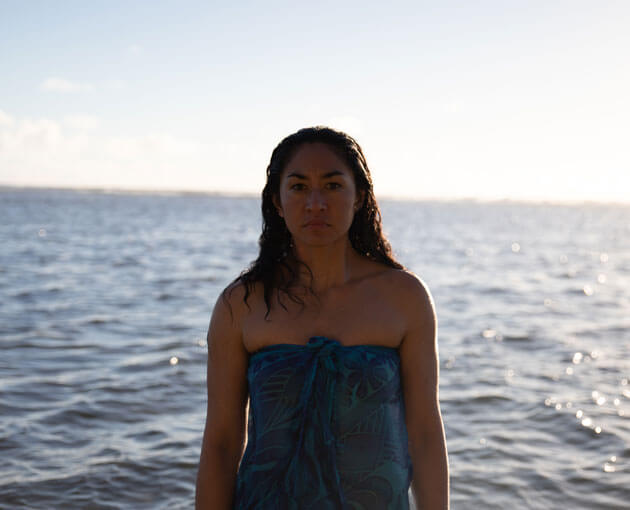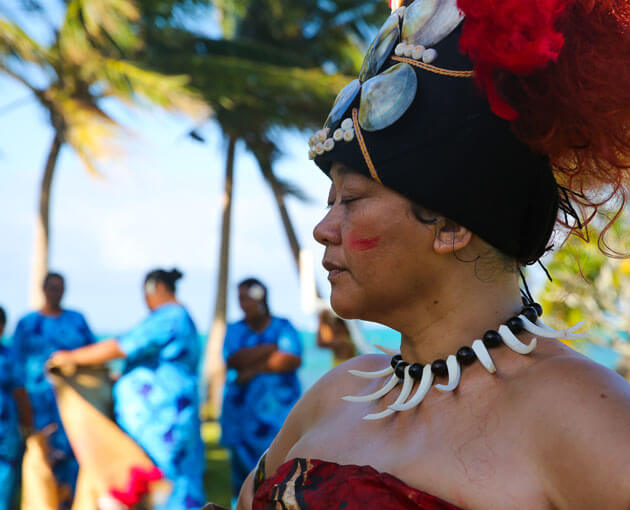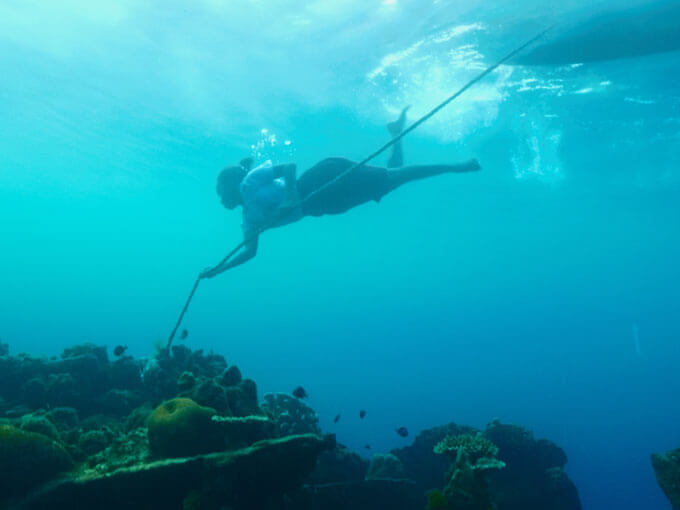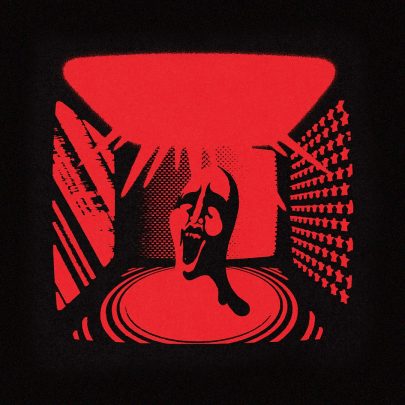Apr 4, 2019 Film & TV
From the producers of Waru comes an eight-part film following the life (or lives) of a woman, Vai, set in seven different Pacific nations. Metro film reviewer Jean Teng found it to be an emotionally rich piece of storytelling.
Vai is in theatres from today.
The concept of Vai is a little complicated to explain. At its core, it’s a portmanteau film made up of eight vignettes following the life of a woman named Vai (meaning “water”), each segment directed by different Pacific wahine. However, who you think Vai is may vary: it could be eight different women from different Pacific nations, or spiritually be one woman and one life, with each nation bringing a unique view to what it means to be a Pacific woman.
The film hints at the latter theory, as facts are carried over and candidly dropped from segment to segment to remind the audience that the Vai’s are connected; sibling names remain the same, and so does her history of migration. That’s the way I think of this film, and, in my opinion, it’s the best way: the arc of growth adds another layer to the dimensionality of Vai.

Vai is an emotional exercise, even for palagi, which speaks to the deftness of the directors’ storytelling. The film gives audiences a strong understanding of each specific culture – of the day-to-day life in a village in Tonga, the significance of the Taualuga in Samoa, the tohi ceremony in Aotearoa – but connects universally with its overarching themes of family, migration and growing old.
It opened at the Berlin Film Festival – worlds away from Aotearoa – and received acclaim there, a testament to how these stories can carry over. When I watch it, I’m struck by how revolutionary this actually is. I’ve seen a ton of movies, but I’ve never really heard Niuean or Tongan on screen before. Shit, it’s kind of embarrassing how little I’ve heard te reo Maori. And have I ever watched a feature directed by a Pacific or Maori woman? Outside of Waru – Kerry and Kiel’s (the producers of Vai) last venture, the spiritual predecessor to this film – and Merata Mita, I haven’t. And that really shouldn’t be overlooked.
The beauty in Vai’s format is some vignettes will hit harder than others, but all of them have little tidbits which resonate and fit into the overall puzzle. Simple things echo the loudest: when Vai’s son rests his head in his mother’s grey hair as Vai, now 80 years old, looks down on her mokopuna, and the baby yawns, the logical part of my brain has completely left the building. I feel, and I’m teary, and it’s wonderful.
Delicate interactions are plentiful, conveying the characters’ interiority even whilst standing before the mighty ocean, or the impending journey of migration, boiling the frame down to what’s really important: the connections you make with other people and with your ancestors. The camera does marvellous work with this too; it prioritises Vai’s face even when other characters are talking, letting the audience in to what she’s feeling: sorrow in some vignettes, fierce determination in others.

Waru copped criticism in reviews for one of the segments in which a broadcaster lays into her racist colleagues with passion, an exaggerated speech which seemed out of place amongst the other vignettes. In Vai there are two such impassioned shows of action, but they are handled exponentially better. Placed in a linear narrative of finding who you are and growing up, the burst of cathartic dialogue at the end of one vignette is a moment of applause rather than a moment of tonal whiplash. And God is it satisfying.
Forcing the writers and directors to write to one continuous take has resulted in well-considered, poignant snapshots of a moment in time – it lends a sense of urgency which throws the audience right into the thick of the scene. But there are inevitable downsides to this structure. It does better in some segments than others; a few would have benefitted by being a bit sharper, more finely tuned in their pauses.
You may view Vai’s merits through its empowerment of brown women – and that’s valid, incredibly so – but it’s also simply a lovely film. The writing rings true, the acting drains tear ducts, and the difference of cultural perspectives is affecting but not jarring. You should watch it.
Go see this if: You miss home.
Don’t see this if: You’d prefer an edge-of-your-seat thriller.






